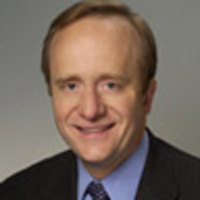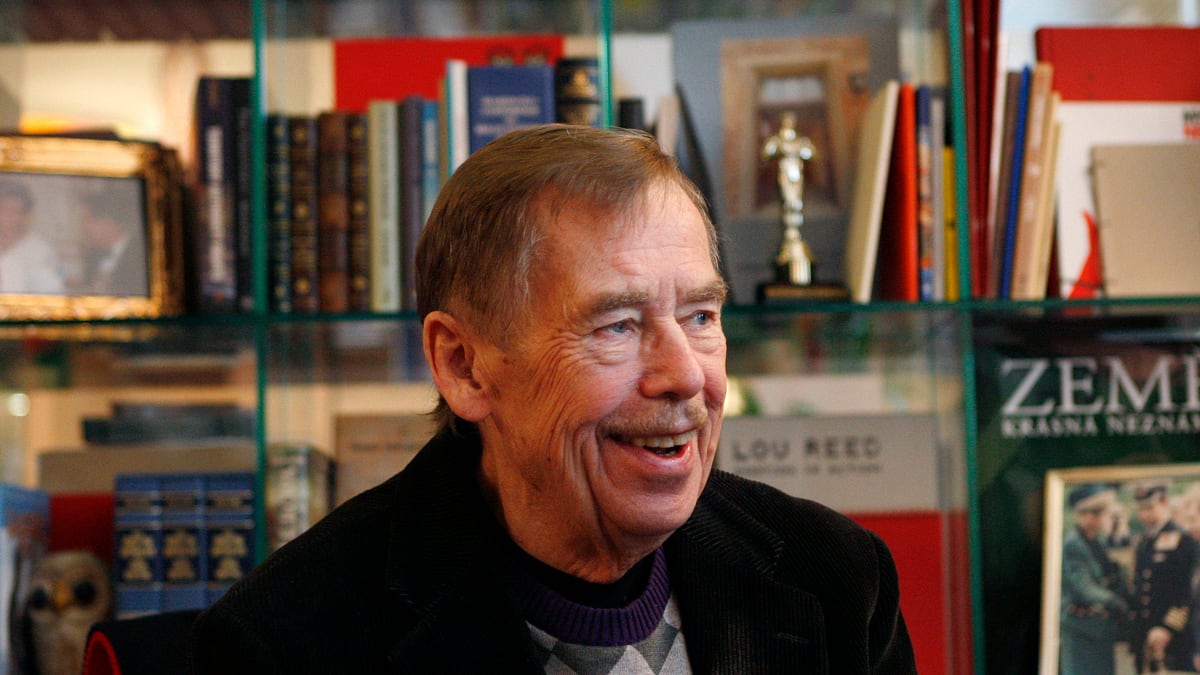As the world struggles to make sense of the depressed and dark fiefdom that is North Korea in the wake of the death of its Dear Leader, let us pause to remember his polar opposite. If Kim Jong-il was dictatorial, sociopathic, and inhumane, Vaclav Havel was a freedom-loving, warm-hearted humanist.
Havel, whose funeral is Friday, was an unlikely world leader. Slight, cerebral, and somewhat shy, he moved from playwright to prisoner to president—then back to playwright—while maintaining an integrity that is rare among artists and almost impossible for politicians.
“Havel was a big personality,” says former President Bill Clinton. Clinton recalled for me his 1994 visit to Prague. “I went to see him after my mother's funeral,” he said. The president was grieving, but the presidency must go on. There was a NATO summit in Brussels and the leader of the free world had to lead. “But after Brussels I went to Prague,” Clinton says, “I established a real relationship with Havel, and I stayed close to him. He took me to one of the jazz clubs in Prague, where he had basically hatched the Velvet Revolution”—the principled, peaceful resistance that drove out the Communists.
The two leaders shared a love of jazz, and Havel surprised Clinton with a gift: a tenor saxophone. “It was a time of hope,” Clinton says. “Havel gave me this tenor sax. He told me that under the Communists, Czechoslovakia had to make all the saxophones for the Warsaw Pact. But now, he said, we will have to compete, and I hope we are up to it.” The sax, Havel pointed out, no longer carried a Communist insignia, but rather the symbol of Havel's movement: OF, for Občanské Fórum or Civic Forum. The O contained a whimsical smiley face, a wry, self-deprecating wink at the pretensions of power.

“He truly was an amazing character,” recalls Havel's friend, former Secretary of State Madeleine Albright. Albright, whose father was a Czech diplomat who escaped the Nazis, formed a powerful bond with Havel. “His determination,” she says, “was impressive. All through the ’60s, ’70s, ’80s and ’90s, he never lost his commitment to human rights. Years later, when I would take him around Washington, he would marvel at my energy—we're the same age. And I would say, ‘Yes, but I've never been imprisoned.’”
Havel, Albright says, was always a rebel. “All his plays have an absurdist message,” she said. Indeed, he dubbed the communist regime he lived under “Absurdistan,” and leavened his moral outrage with wit. When Havel first came to America as president of Czechoslovakia, he insisted that his friend Professor Albright take him to meet her Georgetown students before he met any government officials. “Students had really driven their revolution,” she says.
In addition to jazz and rock-and-roll, he loved art—replacing the stuffy, stilted socialist realist works the Communists displayed in Prague Castle with what Albright recalls “really edgy, advanced, and risqué art. And a lot of nudes.”
The man who favored black T shirts and jeans in his presidential office, who formed a close kinship with Frank Zappa and asked Bill Clinton to invite Lou Reed to perform at the White House, also had an almost mystical faith in democracy. He refused to form a political party per se, preferring that Civic Forum remain a nonpartisan, nonhierarchical movement. And so, inevitably, politics of a more raw, base form prevailed. His adversaries formed hard-nosed political parties, and when they took over Parliament, Clinton recalls, “Havel was so serene. ‘Well,’ he says, ‘that’s what democracy is.’”
The legitimate transfer of power through an election—even one his side lost—was something to be celebrated, Havel believed. But abuse of power was something he abhorred. He simply could not understand why right-wing Republicans were threatening President Clinton with impeachment. Clinton was proposing to expand NATO and ensuring that Europe would remain free. He was leading the world to stop ethnic cleansing in the former Yugoslavia. He had been legitimately elected twice, and Havel privately saw the attacks on Clinton as an assault on democracy. In a 1998 state visit, Havel was wise enough not to dive into the impeachment controversy headfirst, but rather he dismissed it obliquely. “We believe in the same values like the United States,” he said. “And the United States and especially the American nation is a fantastic, big body with many very different faces. I love most of these faces.” And then, with a wry grin and a twinkle in his eye he poked the absurd abuse of power, adding, “There are some which I don't understand. I don’t like to speak about things which I don't understand.”
I was a White House aide at the time, and when I met Havel I proudly showed him the Civic Forum button I’d been given by Havel's brother in December 1989. I told him how I’d danced with thousands of Czechs in Wenceslas Square as communism was dying and freedom was being born. He smiled warmly. We could use more of the warmth of Havel’s undying faith in people-powered democracy in this cold winter of discontent. His life is testament to the power of politics at its best, a politics not of cynicism and power, but of truth and freedom. A politics that Havel described as “the art of the impossible.”





